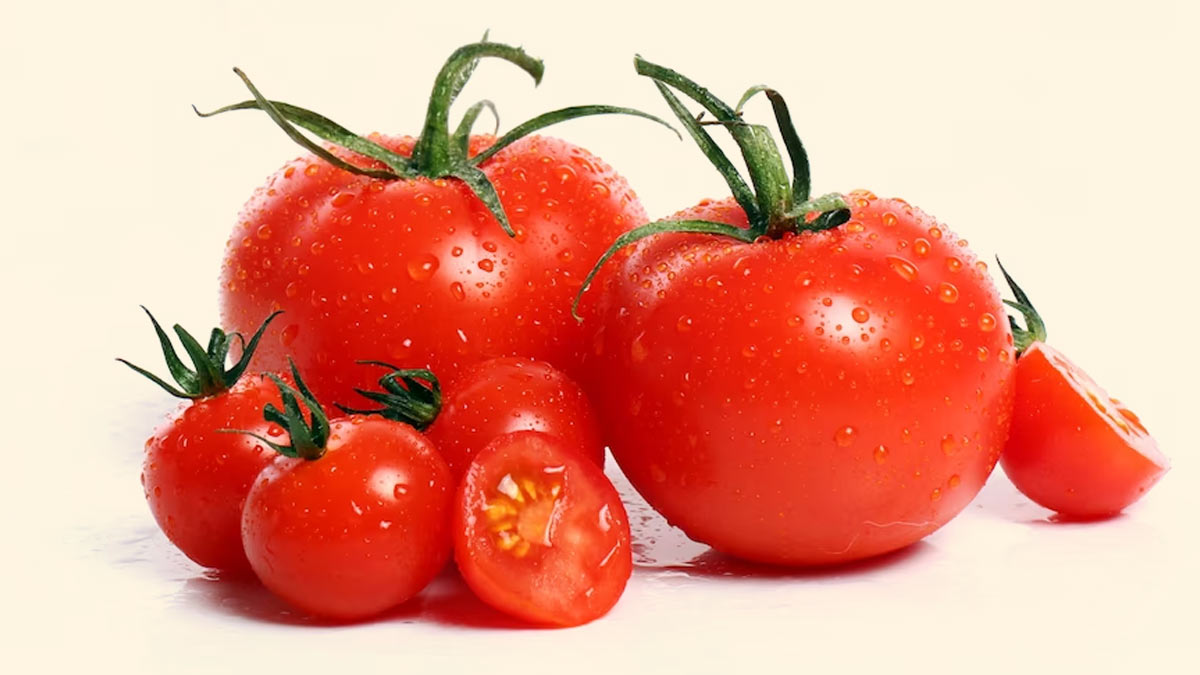
Tomatoes are widely known for their vibrant colour, delicious taste, and numerous health benefits. Packed with essential nutrients, including vitamins, minerals, and antioxidants, tomatoes are a valuable addition to a well-balanced diet.
However, there are certain health conditions in which individuals may need to exercise caution when consuming tomatoes. In this article, we will explore the diseases or conditions for which it may be advisable to limit or avoid tomatoes and tomato-based products.
Acid Reflux and GERD
Acid reflux and gastroesophageal reflux disease (GERD) are conditions characterised by the backflow of stomach acid into the oesophagus.
As per Dr Edwina Raj, Senior Dietician, Aster CMI Hospital, Bangalore, tomatoes are naturally acidic, and some people with acid reflux or GERD may experience discomfort or worsening symptoms after consuming tomatoes.
The high acidity of tomatoes can potentially trigger heartburn or exacerbate existing reflux symptoms. If you have these conditions, it may be wise to moderate your tomato intake or consult with a healthcare professional for personalised dietary guidance.

Irritable Bowel Syndrome (IBS)
Individuals with irritable bowel syndrome (IBS) often have heightened sensitivity to certain foods, including those that are high in fibre or contain specific sugars, such as fructose.
According to the World Journal of Gastroenterology, tomatoes, especially when consumed in large quantities, can be a potential trigger for digestive distress in some individuals with IBS. It is advisable for people with IBS to monitor their symptoms and, if necessary, limit their intake of tomatoes to prevent discomfort.
Also read: Eating Tomatoes Daily Can Boost Male Fertility By Increasing Sperm Count: Study
Histamine Intolerance
Histamine intolerance is a condition characterised by the body's inability to properly break down and metabolise histamine. Tomatoes are considered to be a moderate to high histamine food, and individuals with histamine intolerance may experience symptoms such as headaches, skin rashes, nasal congestion, or gastrointestinal disturbances after consuming tomatoes.
If you suspect histamine intolerance, it is recommended to consult with a healthcare professional for appropriate dietary management.
Kidney Stones
Certain types of kidney stones, such as calcium oxalate stones, can be influenced by dietary factors. According to journal Biology, tomatoes contain oxalates, naturally occurring substances that can contribute to the formation of kidney stones in susceptible individuals.
If you have a history of kidney stones or are at risk of developing them, it may be beneficial to moderate your tomato consumption and maintain proper hydration.

Allergies or Sensitivities
Although relatively rare, some individuals may develop allergies or sensitivities to tomatoes. Tomato allergy symptoms can range from mild to severe and may include skin rashes, itching, hives, swelling, or gastrointestinal disturbances. If you suspect a tomato allergy or sensitivity, it is crucial to seek medical advice and, if necessary, undergo appropriate testing to determine the cause of your symptoms.
Also read: How Many Types Of Tomatoes Do You Know?
While tomatoes are generally considered a nutritious and beneficial food, there are certain conditions in which individuals may need to exercise caution or limit their consumption. Acid reflux, GERD, IBS, histamine intolerance, kidney stones, and allergies/sensitivities are some of the situations where tomatoes may need to be avoided or moderated.
It is important to note that individual responses can vary, and what applies to one person may not apply to another. If you have concerns about your health or dietary restrictions, it is recommended to consult with a healthcare professional or registered dietitian for personalised advice and guidance.







